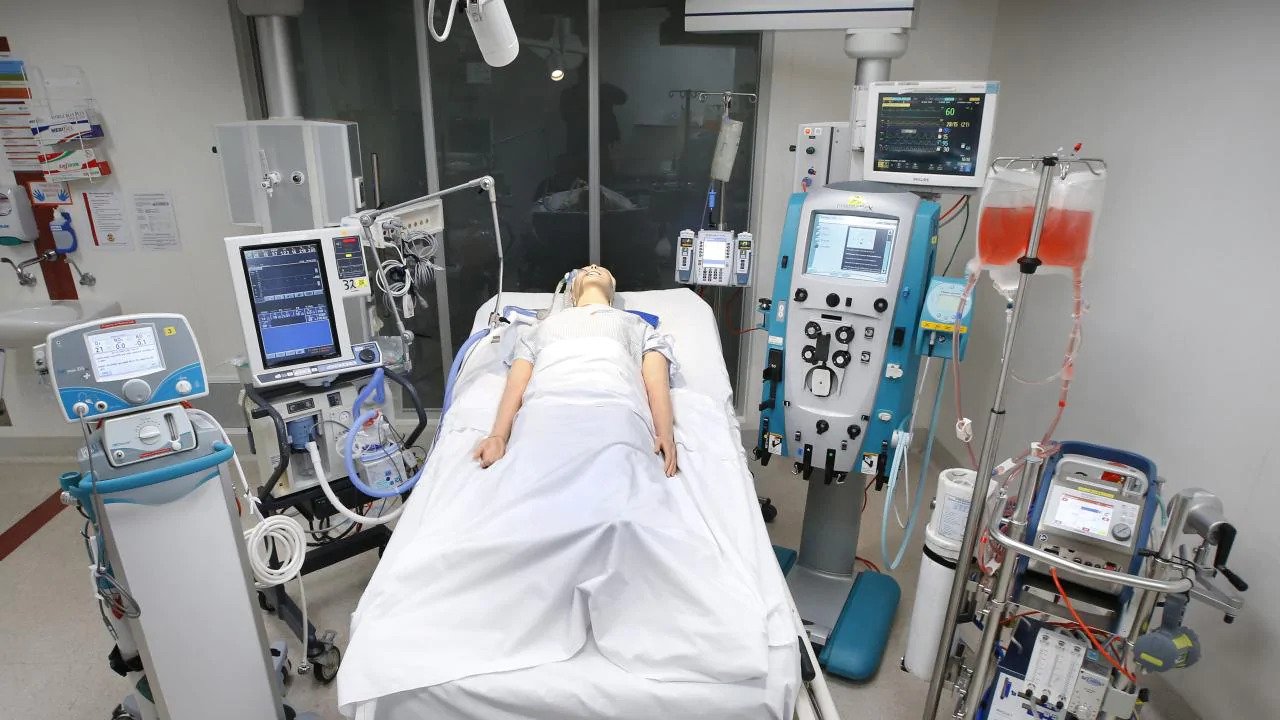RIO DE JANEIRO, BRAZIL – The national healthcare system, which is in collapse in some states, is expected to enter an acute stage of the crisis in 20 days, with a shortage of approximately 19,000 ICU beds to care for severe Covid-19 patients. The projection is from the American consultancy Kearney, a company that has been working with scenarios for over 80 years and has a nucleus focused on the healthcare area in Brazil.
The projection takes into account the number of beds available in the public and private networks, in addition to the announced increase of new field hospital beds made by the state and federal governments until late May. These figures are compared with data on the country’s development of the disease, death toll and service capacity.
Brazil today counts on 34,000 beds prepared to attend coronavirus patients, of which 15,400 are in the public system and another 18,600 in private hospitals. A good part of these beds – 17,500 units – are currently being used by patients with coronavirus or other diseases. Thus, there are 16,500 beds left for new patients.

Considering all variables surrounding the behavior of the disease in the country, with patients coming and going, estimates show that by June 30th there will be approximately 32,800 beds in demand. This means that there will be a shortage of approximately 18,700 beds needed by critically ill patients.
Out of this 18,700 beds deficit, 17,000 will be in the public network, which means that the poorest population will suffer the most serious consequences of the lack of care.
The report ends by stating that “it is not yet time to implement a large-scale reopening in Brazil,” although many states and capitals are already signaling the opening of many businesses. Today, the ICU occupancy rate in Pernambuco, Maranhão and Amapá has reached around 100 percent. The states of Rio de Janeiro, Ceará, Bahia and Rio Grande do Norte are close to “saturation”. By the end of this month, the greatest demand will be in São Paulo, Rio de Janeira and Pará.
Joaquim Cardoso, senior leader of health practices at Kearney Brasil, says that about 7,000 extra ICU beds throughout the country are currently being assembled. “It is a very worrying scenario. Even if all this structure is ready and enabled for use, another 12,000 beds will still be lacking”.
It is projected that in 20 days virtually all states in Brazil’s North and Northeast regions will have a higher demand than their ability to supply, above 120 percent.
Carlos Higo, a partner in Kearney Brasil’s health area, says that a measure that would relieve the burden in these regions is the transfer of patients to other, less pressured, states. The estimates show that 607 patients could be transferred from Amazonas to hospitals in Mato Grosso, for instance, without compromising the care capacity of the receiving state. From Bahia, another 820 patients could be transferred to Minas Gerais.
According to the report, Rio Grande do Sul could send up to 671 patients to Santa Catarina, without compromising the neighboring state. São Paulo, on the other hand, even under pressure, would be able to accommodate up to 1,908 people from Rio de Janeiro, according to the report’s estimates. All these scenarios consider the spread of the disease in the country, the health care capacity in each state and project this scenario for June 30th.
“This measure is complex, but may be more feasible than setting up remote ICUs [in field hospitals]. In addition, it has been used successfully in other countries, such as France,” says the expert.
Deaths
Projections show that by June 30th, Brazil could reach the mark of up to 1.4 million people contaminated by Covid-19, and could reach 19.5 million by December this year. Following current growth rates, the number of deaths could more than double over the next 20 days, reaching approximately 78,000 deaths. If the isolation and containment measures are not respected, the alarming scenario points to around 147,000 deaths by July 31st.

